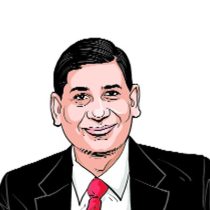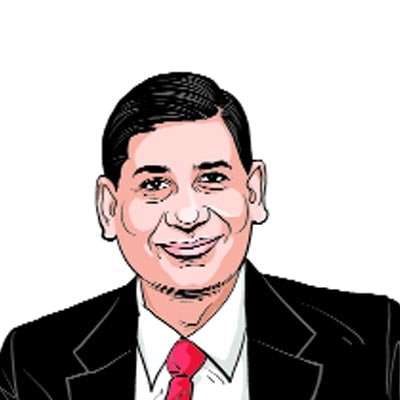Not a holy book
As aftermath of Sabarimala judgment shows, India is not ready for a constitutional theocracy.

The Sabarimala protests and politicisation of the issue is yet another reminder that we should tread cautiously while dealing with purely religious matters.
Religion has not only been an indispensable part of human existence, but it is an also ineffaceable part of our lives. Indian society is predominantly religious and as a result, we are not at ease with the idea of secularism and religion continues to play a dominant role in political discourse.
What an individual does with his own “solitariness” is how Alfred North Whitehead defines religion. For former President S Radhakrishnan, religion was “a code of ethical rules and that the rituals, observances, ceremonies and modes of worship are its outer manifestations”. Religions are nothing but the submission to some higher or supernatural power. Constitutions, like religions, do try to bring in some order and coherence into an otherwise disorderly world. Accordingly, even the US, despite its wall of separation between church and state is rightly termed as a “nation with the soul of [a] church”. Justice William O Douglas in Zorach v Clauson (1952) admitted that “we are religious people, whose institutions presuppose a Supreme Being”.
Religions are about “beliefs” — reason and empiricism are alien to religions. Moreover, religions are exclusionary and discriminatory. The Sabarimala protests against the Supreme Court judgment, though deplorable, are thus neither novel nor surprising. Post the Shah Bano decision, we had a similar experience. What is surprising is the Court’s over-indulgence in purely religious matters in the name of constitutional morality and its enthusiasm in reforming religions, particularly discriminatory gender-unjust religious practices. Reforms are a must, but top-down reforms are always counter-productive and allow fanatics to hijack the debate.
Religions are indeed regressive, but we can observe the increasing adoption of religious frameworks by liberal democracies. Modern constitutions too are becoming similar to religions, resulting in a sort of constitutional theocracy. Abraham Lincoln in 1838 urged Americans to consciously adherence to the “political religion of the nation”. Prime Minister Narendra Modi himself said in 2014 that only the holy book for him is the Constitution of India. From Lalu Prasad to victims of mob-lynching to perpetrators of sexual harassment, everyone makes a religiously loaded statement while “swearing” by the Constitution expressing full “faith” in the judiciary. Is not “faith” another name for religion?
All belief is generally blind. Thus, one should not reason with a devotee be he a devotee of god or a politician. Atal Bihari Vajpayee famously called Indira GandhiDurga in 1971. Recently, Maharashtra BJP spokesperson, Avadhut Wagh, called the PM the 11th incarnation of Lord Vishnu. Rahul Gandhi is visiting temples to prove that he too is a devout Hindu. Most Indian ministers take their oath of office “in the name of God” rather than by saying “I solemnly affirm”.
Our courts are called “temples of justice” and the Supreme Court’s own seal says Yato Dharmasto Jayah (where there is Dharma , there is justice). “Dharma” and “law” were used as synonyms in Hindu religion and our apex court too treats them as the same.
Do not we say the Constitution — like divine law — is a higher law to which all laws and human beings are to be subordinated? Are not our Supreme Court judges trying to bring in a new civil religion in the name of constitutional morality? Is it not a fact that our judges frequently and at times unnecessarily quote religious scriptures in deciding purely worldly matters? God has authority over us and the law too is all about authority.
The Constitution is indeed the holy scripture of the modern civil religion. Like other organised religions, this civil religion has its hymns and its sacred ceremonies, its prophets and its martyrs. If given full effect, this constitutional theology and what former Chief Justice Dipak Misra termed a “constitutional renaissance” can bring about heaven on earth with the true realisation of justice, liberty, equality and even of fraternity though it is much less emphasised.
Judges under this civil religion are like priests — they put on robes as well. Like priests, they alone have the authority to tell us the meaning of the sacred text. They are even addressed as “My Lords” and criticism/disobedience, like blasphemy, is punishable as contempt of court. Many a time, these lords indeed saved our democracy from authoritarianism and just like god, sometimes they too arbitrarily decide on life and death.
Should religions be subjected to constitutional morality and rationality? Rationality and religious beliefs do not go together and the Constitution protects these beliefs. In the Preamble itself, our Constitution guarantees “liberty of thought, expression, belief, faith and worship”. Article 26 gives autonomy to every religious denomination or any section thereof “in matters of religion”, subject to public order, health and morality.
In interpreting these articles, the Supreme Court had said that every religious practice will not be constitutionally protected. The Court restricted freedom of religion to “essential practices”. In the process, it ignored the fact that privileging one practice over another is not right. All practices taken together constitute a religion. Moreover, in Ismail Farooqi (1994), the Court further restricted religious freedom by adding new conditions through new doctrines of “peculiar significance of religious practice” and insisting on “comparative examination of religious practice under different religions”. Both the requirements are contrary to earlier judgments of the Court and deserve reconsideration by a larger bench. In the Sabarimala judgment (2018), Justice D Y Chandrachud was candid enough to acknowledge the problems with the essentiality test.
This author has consistently said that courts should not behave like clergy. It is not the judiciary’s job to reform religions. The Sabarimala protests and politicisation of the issue is yet another reminder that we should tread cautiously while dealing with purely religious matters.
The supremacy of the Constitution need not be converted into an idolatry of the law. Constitutional morality is a laudable goal but we are not yet ready for it. Despite Constitution’s text, on the ground, neither does freedom of religion mean “freedom from religion” nor does it include — at least for our women — “freedom within religion”.
The writer is president, Consortium of National Law Universities. Views are personal.
For all the latest Opinion News, download Indian Express App
More From Faizan Mustafa
- Adultery case: How Supreme Court underlined women’s autonomy as facet of human dignityAdultery will continue as a ground of divorce and, therefore, remain in civil law. Thursday’s verdict will be welcomed by those who believe there should…
- Ayodhya case: Understanding the ‘essentiality doctrine’ and its implicationsBy refusing review, the court has refused to consider the question of whether the freedom of religion protects only practices of particular significance, and not…
- Why the triple talaq Ordinance is neither perfect nor necessaryWhat is the purpose of criminal law, and what is its relationship with the state and the citizen? How does the Ordinance measure up against…








































No hay comentarios:
Publicar un comentario